McCarthy Comes up Short in First (and Second) Tries at House Speakership
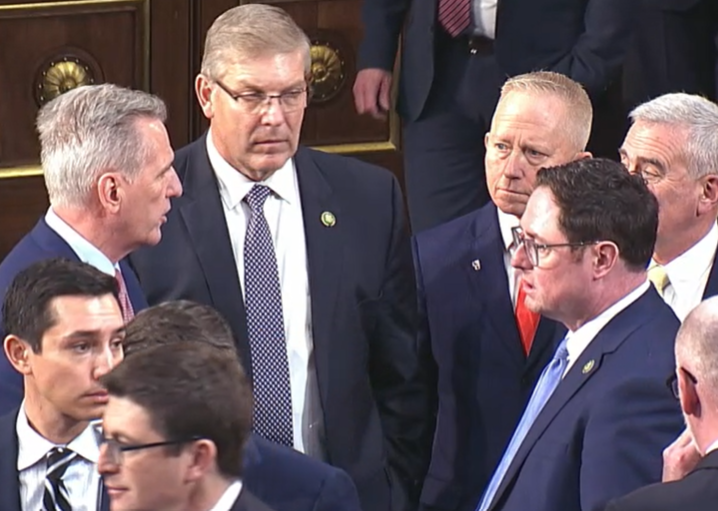
A divided Republican caucus - in part the handiwork of former President Donald J. Trump's
[caption id="attachment_120829" align="alignleft" width="240"]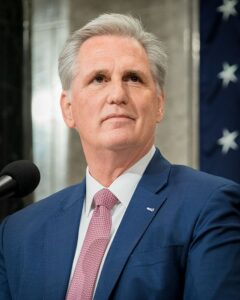 McCarthy[/caption]
McCarthy[/caption]
continuing influence - has the Grand Old Party scrambling on the floor of the United States Representatives.
From the New York Times, regarding U.S. Rep. Kevin McCarthy's initial failed bid to secure the Speakership:
"Representative Kevin McCarthy of California lost his first vote for speaker on Tuesday and was in a pitched battle for the top job in the House, amid a rebellion among hard-right lawmakers that left the post up for grabs and prompted a historic struggle on the floor at the dawn of the new Republican majority.
"The Republican mutiny, waged by ultra conservative lawmakers who for weeks have held fast to their vow to oppose Mr. McCarthy, dealt a serious blow to the G.O.P. leader and laid bare deep divisions that threaten to make the party’s majority ungovernable. But it did not end the California Republican’s bid for speaker, which he has vowed to continue, forcing multiple votes if necessary until he wins the top post."
“We may have a battle on the floor, but the battle is for the conference and the country,” Mr. McCarthy said before the voting began, and following a fiery private meeting with Republicans in which he defiantly told his detractors, “I am not going away.”
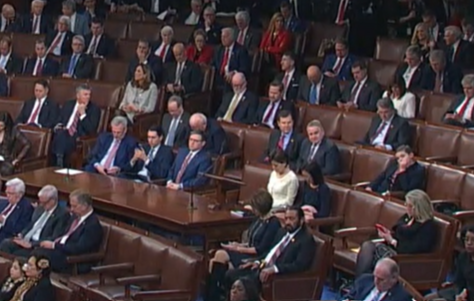
Then there's this, from Rolling Stone:
"Kevin McCarthy really, really, really wants to be speaker of the House of Representatives. It’s not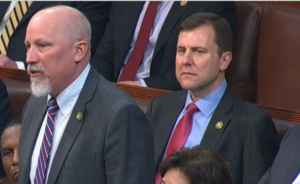 going to come easy. The 118th Congress is set to begin on Tuesday, and though Republicans won control of the chamber last November, a not-insignificant portion of the party remains steadfastly opposed to giving McCarthy the gavel. At least 19 Republicans voted against McCarthy on the first ballot, which means he won’t secure the majority necessary to be House speaker — for now.
going to come easy. The 118th Congress is set to begin on Tuesday, and though Republicans won control of the chamber last November, a not-insignificant portion of the party remains steadfastly opposed to giving McCarthy the gavel. At least 19 Republicans voted against McCarthy on the first ballot, which means he won’t secure the majority necessary to be House speaker — for now.
"So far, Reps. Andy Biggs (R-Ariz.), Dan Bishop (R-N.C.), Lauren Boebert (R-Colo.), Josh Brecheen (R-Okla.), Michael Cloud (R-Texas), Andrew Clyde (R-Ga.), Eli Crane (R-Ariz.), Matt Gaetz (R-Fla.), Bob Good (R-Va.), Paul Gosar (R-Ariz.), Andy Harris (R-Md.), Ana Paulina Luna (R-Fla.), Mary Miller (R-Ill.), Ralph Norman (R-S.C.), Andy Ogles (R-Tenn.), Scott Perry (R-Pa.), Matt Rosendale (R-Mt.), Chip Roy (R-Texas), and Keith Self (R-Texas) have voted for members other than McCarthy, who could only afford to lose four GOP votes."

The New Jersey GOP delegation (Chris Smith, Jeff Van Drew and Tom Kean, Jr) voted for McCarthy.
In a second vote on the floor, McCarthy failed again by a vote of 203 (McCarthy) 212 (Hakeem Jeffries) 19 (Jim Jordan).
Kean and Smith huddled together (above) in a row of the chamber behind the embattled McCarthy.
Below: U.S. Rep. Bonnie Watson Coleman (D-NJ) on the floor after the second vote.
[caption id="attachment_142623" align="alignnone" width="673"]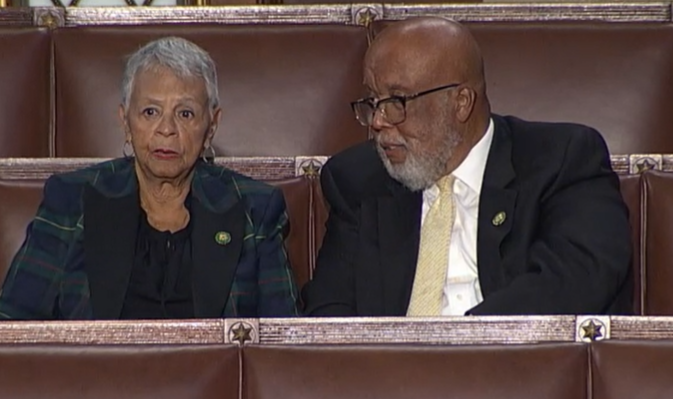 Watson Coleman[/caption]
Watson Coleman[/caption]






In 1923 it took 9 votes to pick a Speaker and the voting lasted into February. So, this part of American History has a history of these kinds of things. Then there was the 133 votes that took 2 months to pick the Speaker of the House back in 1856.